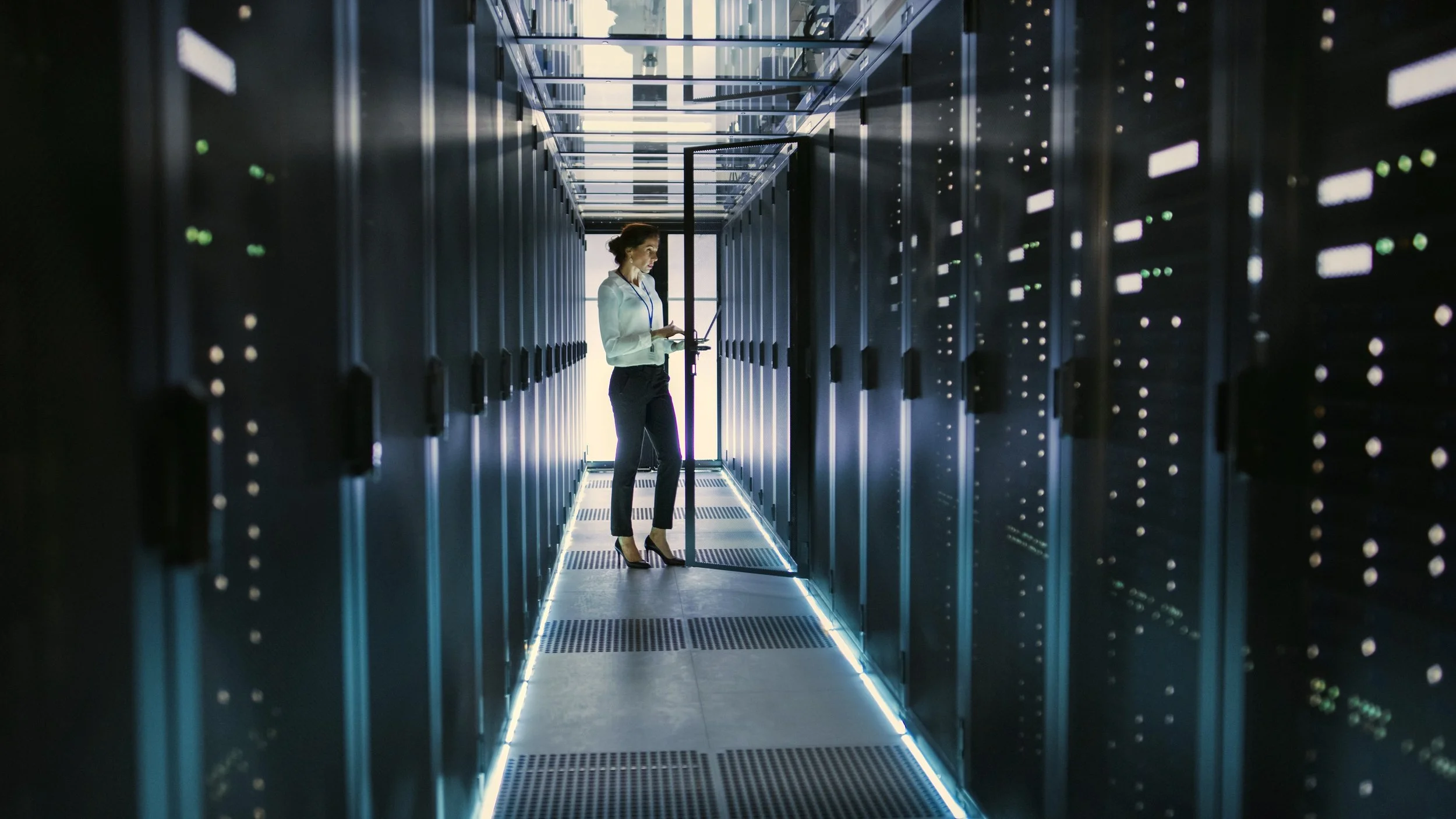Given the current digital landscape, it is almost impossible to think of a world without computers. These wonders of modern engineering have revolutionized every facet of our lives running on silicon chips.
However, the future may not be defined by silicon chips but rather by an intriguing new concept where laboratory-grown "brains" function as the biological hardware of cutting-edge computers.
Will conventional silicon-based computers be surpassed by biocomputers? (Image Credit: Gorodenkoff via Shutterstock / HDR tune by Universal-Sci)
Artificial Intelligence versus Organoid Intelligence
AI, conceived in the mid-20th century, has revolutionized numerous sectors. From aiding medical diagnoses to penning evocative poetry, AI's capabilities have proven immensely valuable.
However, despite these advancements, AI still falls short of human cognition. Traditional silicon-based computers excel in computational tasks but are no match for the complexity and efficiency of human learning.
For some tasks, the human brain can reach a higher proficiency level in significantly less time and with lower energy consumption. This can be illustrated in examples like AlphaGo, a computer program by Alphabet Inc.'s DeepMind Technologies that defeated the world's top human Go player back in 2017.
Go is an ancient strategic board game originating from China. It's played on a grid, usually 19x19, with the aim of controlling more territory than your opponent. Despite simple rules, the game is deeply complex, providing a challenge for artificial intelligence research.
However, the crux is that to reach that level, AlphaGo had to be trained by playing over 160,000 games. Games can last for several hours; it would take a human almost 150 years playing three games per day to get that many games in. Yet humans reached an equivalent proficiency level in a much shorter period of time, meaning that it is way more efficient at learning.
The human brain's unique architecture—about 100 billion neurons interconnected through more than 10^15 connection points—allows us to acquire new knowledge without having to relearn everything and to handle incomplete or contradictory information more effectively.
In addition, the human brain's unmatched storage capacity of approximately 2.5 petabytes (2,500 terabytes) dwarfs the data storage potential of contemporary computers, which are constrained by the number of transistors that can be packed onto a chip.
To bridge the gap, researchers have proposed an audacious idea: why not harness the source of human intelligence itself, the brain, for computing?
Not actual ''brains''
This groundbreaking concept has birthed the concept of "organoid intelligence." Here, the focus is on brain organoids, which are artificially grown, miniaturized, and simplified yet functional. These organoids, created from stem cells, are not actual "mini-brains," but they do replicate critical aspects of brain function and structure, such as neurons and other brain cells necessary for cognitive tasks like learning and memory.
Advantages of biocomputers
Let's look into some of the advantages of biocomputers compared to conventional silicon-based computers.
More processing power, less energy-intensive
As such, the potential benefits of developing a biocomputer powered by human brain cells are significant. Not only could it give rise to more powerful computers, but it could also offer a more sustainable alternative to current energy-intensive supercomputers.
A comparison between the Frontier supercomputer and the human brain - (Image Credit: Universal-Sci / Source: Front. Sci. 2023)
Capable of handling more complex subjects
In practice, biocomputers could be utilized to study more complex systems than currently possible with silicon-based computing.
One could think of studying brain functions in both healthy states and diseases, providing valuable insights into conditions like Alzheimer's or autism. They could, for example, also be used to investigate the impact of certain substances, such as pesticides, on memory or learning.
Eliminating the need for lab animals
Biocomputers using brain organoids could potentially revolutionize scientific research and greatly reduce our reliance on lab animals.
Traditional research methods often involve testing hypotheses on live animals, which raises a plethora of ethical concerns. Bio-computers, with their advanced simulation capabilities, could model biological processes and disease states, potentially reducing or even eliminating the need for animal testing.
All in all, it would be a double-edged sword that could accelerate the pace of research while also fostering a more ethical approach to scientific discovery in particular research areas.
First evidence of viability and ethical caveats
Despite many challenges, organoid intelligence has already shown promising achievements. Researchers recently demonstrated that brain cells in a petri dish could play a game of Pong, providing tangible evidence of the concept's viability.
The potential for organoids to learn, remember, and interact with their environment raises profound ethical questions, such as the development of consciousness or the experience of pain. These concerns are not taken lightly by researchers, who are proactively setting boundaries for such research to ensure it remains ethically responsible.
With the dawn of biocomputers, we may be stepping into a future where human brain cells redefine our technological landscape. As we move forward, it becomes increasingly clear that the frontier of computing lies not just in the realm of artificial intelligence but in the very cells that power our cognition.
Sources and further reading:
Organoid intelligence (OI): the new frontier in biocomputing and intelligence-in-a-dish (frontiers in science)
In vitro neurons learn and exhibit sentience when embodied in a simulated game-world (Neuron via Cell Press)
What Is the Memory Capacity of the Human Brain? (Scientific American)
Too busy to follow science news during the week? - Consider subscribing to our (free) newsletter - (Universal-Sci Weekly) - and get the 5 most interesting science articles of the week in your inbox
FEATURED ARTICLES:









